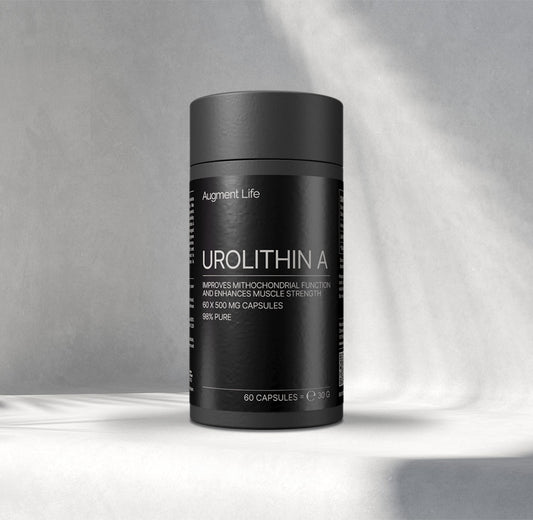We are often bombarded with notions that we need to supplement our diets with a variety of vitamins, minerals, and specific nutrients. Not only that, but we often hear how we should eat more „lean“ protein, supplement it right after a workout, or put it in a variety of smoothies, oatmeal, and other meals.
But what is the importance of eating protein anyway? What is it and why do we need it? How much do we even need every day and in what form? Where can we find good sources of protein? Keep reading this article and find the answers to all these questions and much much more!
What are proteins?
Proteins are organic molecules made out of amino acids. There are 20 different amino acids and they are almost considered building blocks of the living world. There are billions of combinations in which they can be linked together, ranging from different lengths of proteins to chain patterns and space organization.
Of those 20, there are 9 essential amino acids:
- histidine,
- isoleucine,
- leucine,
- lysine,
- methionine,
- phenylalanine,
- threonine,
- tryptophan,
- and valine.
„Essential“ means that human bodies cannot synthesize them, and need to receive them from other sources, like food or supplements. Protein patterns are encoded in our DNA, meaning that every protein „recipe“ is hidden in our genes. They can be as small as only having 10 amino acids, or as big as containing more than twenty thousand amino acids.
Once fully created, proteins take on many roles in our bodies, ranging from signaling molecules to performing necessary cell functions such as the transport of substrates, controlling cell reproduction, participating in damage control, fighting off infections, and many more. Even the antibodies our body produces during disease are a special protein type. There is not a single molecular process that does not involve proteins in one way or the other. Proteins that are not functional are structural, and they build up our muscles, bones, skin, and cartilage.
Why do we need to eat protein?
Because human bodies cannot produce those 9 essential amino acids, they have to be ingested through food. In simple terms, there is no life without proteins as every bodily function revolves around them. Not eating enough protein will eventually result in severe muscle loss and the development of various diseases.
It is thought that even the diet of early humans consisted of 30% protein, whether it was from animal or vegetarian sources. Food stability was surely an issue in the lives of our ancestors, but they could get enough protein from foraging, as well as from hunting. While hunting for large animals secured a large amount of meat that could last them for days, foraging and scavenging stably brought them protein through vegetables, legumes, small insects, and fish.
The discovery of fire really sparked rapid brain development, as cooked meat could be digested quickly and provide humans with a large amount of calories and nutrients in a short time.
How much protein should we eat?
The European Food Safety Authority has given recommendations on the amounts of protein different age groups should eat daily, given in grams per kilogram of total body mass:
- children (1 – 17 years old) – between 1.14 and 0.83 grams,
- adults (18 – 65 years old) – 0.83 grams,
- elderly (> 65 years old) – 1 gram,
- during pregnancy – 1, 9, and 28 grams added to the usual amount in the 1st, 2nd, and 3rd trimester, respectively,
- during breastfeeding – up to 19 grams more added to the usual amount.
If you feel you cannot eat these amounts of protein through food every day, supplementation is a great way to go. Protein powders can be mixed in milk of any kind, yogurt, smoothies, porridge, cereal, and so on. Look for protein supplements containing the highest purity whey, and don't exceed the recommended amounts.
These are useful guidelines for protein intake, created to follow various life stages, but the actual amount of protein you should eat can be precisely determined in agreement with your doctor and/or nutritionist. Excessive protein intake can especially be dangerous to those with kidney issues.
Lack of protein - consequences
The first symptoms you will notice if you don't consume enough protein are:
- overall weakness,
- fatigue,
- constant hunger,
- sugar cravings,
- problems with nails, hair, and skin.
Ultimately, if you don't eat enough protein over a longer period, you will be at high risk for severe injuries, breaking bones, or being unable to move as efficiently. You will also most likely have issues with your immune system and not be able to quickly fight off infections and heal injuries.
After the age of 40, it is recommended to eat even more protein than the usual amount recommended for adults. As the metabolism slows down, our ability to process food and extract nutrients declines. In that case, the more nutrients we eat the better they will be used. This is especially important given that after we hit 40, the risk of developing sarcopenia and losing a significant amount of muscle mass increases.
Protein sources
Protein can be consumed through different types of food or dietary supplements. The variety, quality, and availability of food sources have tremendously increased in the last century in the Western world, with many choices of dietary habits one can decide on. It is not necessary to only eat food from animal sources to get enough protein, as there are plenty of vegetarian and vegan options as well.
Some high-protein animal foods are:
- lean meat – beef, pork, chicken and turkey,
- fish – salmon, tuna, cod,
- seafood – muscles, shrimp,
- dairy products – cheese, eggs, milk, yogurt.
Some high-protein plant foods are:
- red kidney beans,
- soy,
- chickpeas,
- lentils,
- nuts - especially peanuts, almonds, and Brazilian nuts,
- seeds – especially sesame and flax seeds,
- quinoa,
- oats,
- pasta.
Bioavailability of proteins
Bioavailability is an important term when speaking about any nutrient, be it one of the main ones like protein is, or a dietary supplement. You want to make sure whatever you are eating is readily available to be metabolized by your body and just excreted through bodily fluids. That is exactly what bioavailability describes – if the food can be recognized, metabolized, and used by our bodies (and to what degree).
There is a huge debate in the scientific/nutrition world about whether animal protein is more bioavailable than plant protein. The answer is that yes, animal protein is likely more bioavailable than plant-derived protein, which has been showcased in numerous studies.
Why is that? The reason behind plant-derived protein being less bioavailable lies in the fact that plant proteins have less favorable amino acid profiles, and generally lack the essential amino acids in comparison to animal proteins. For example, legumes lack methionine, cysteine, and tryptophan. Furthermore, plants contain a high content of dietary fibers and other compounds (e.g. phytic acid) that bind proteins and prevent them from being absorbed.
However, lower bioavailability of plant proteins does not at all mean they are less healthy or useful than animal ones. On the contrary, eating a diet based on a high meat, fish, dairy, and egg content can result in overindulging in fat and calories. The lack of dietary fibers, vitamins, and minerals we usually eat through plant-derived foods can result in the development of various diseases.
Lower bioavailability of plant proteins also does not mean it is impossible to receive enough necessary protein through plants. It just means the diet should be adapted towards eating more of the necessary plant protein through a variety of different produce while supplementing if needed.
Ultimately, the key for healthy eating is variety or consuming food in connection to your lifestyle and nutritive needs.
Literature:
1. What Are Proteins and What Is Their Function in the Body? (2019) The European Food Information Council (EUFIC).2. Ann Gibbons (2013) The Evolution of Diet. National Geographic.
3. Reid-McCann, R.J., Brennan, S.F., McKinley, M.C. et al. The effect of animal versus plant protein on muscle mass, muscle strength, physical performance and sarcopenia in adults: protocol for a systematic review. Syst Rev 11, 64 (2022). https://doi.org/10.1186/s13643-022-01951-2.












